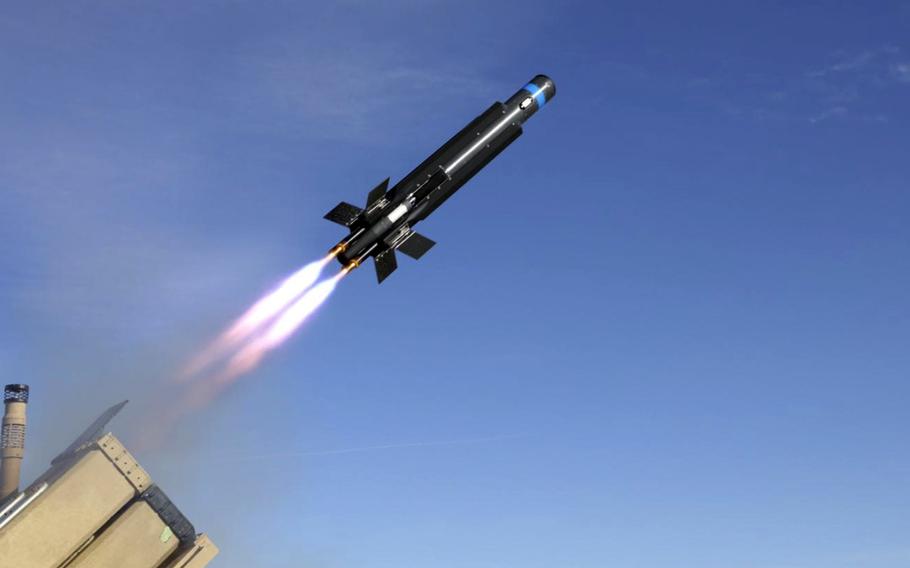
A Coyote interceptor is launched in this undated photo. (RTX Corp.)
A $75 million contract has been awarded to defense firm RTX Corp. to produce 600 Coyote Block 2C interceptors used to attack enemy drones, according to an Army news release Friday.
The announcement follows a series of drone attacks launched from sites in Yemen against Red Sea commercial shipping and a fatal attack on a U.S. base in Jordan that killed three Army Reservists on Jan. 28.
RTX, the Virginia-based defense contractor formerly known as Raytheon, was awarded the contract on Jan. 16, roughly one month after the Army submitted plans to procure 6,000 Coyote kinetic interceptors within five years, according to the General Services Administration’s System for Award Management website.
The Army describes weapons that impact their targets as kinetic weapons, as opposed to explosive or other types of payloads.
The contract will provide “direct support to the U.S. counter-unmanned aircraft systems mission” and addresses the increased demand for the Coyote interceptors, according to the Army release.
The one-time use, warhead-equipped interceptors are launched by a rail system and powered by a rocket motor and turbine engine, according to RTX’s website. Development for the Coyote system began in 2016 and the interceptor received its flight qualification three years later.
Combined with Raytheon’s Ku-band Radio Frequency System, the Coyote is part of the Army’s Low, slow, small, unmanned aircraft Integrated Defeat System, or LIDS, to track and destroy enemy drones.
The Ku-band radar, which can be set up within 30 minutes, detects drones, rockets, artillery and mortar fires, according to RTX. It pairs with the Coyote as well as other weapons, including the land-based Phalanx and .50-caliber machine guns.
Drone warfare is on the upsurge in places like Syria and Ukraine. In the fatal Jan. 28 attack in Jordan, 34 other soldiers were injured after a one-way attack drone hit the outpost near the Syrian border.
The White House attributed the attack to Iranian-backed militant groups in Syria and Iraq, according to a statement that day.